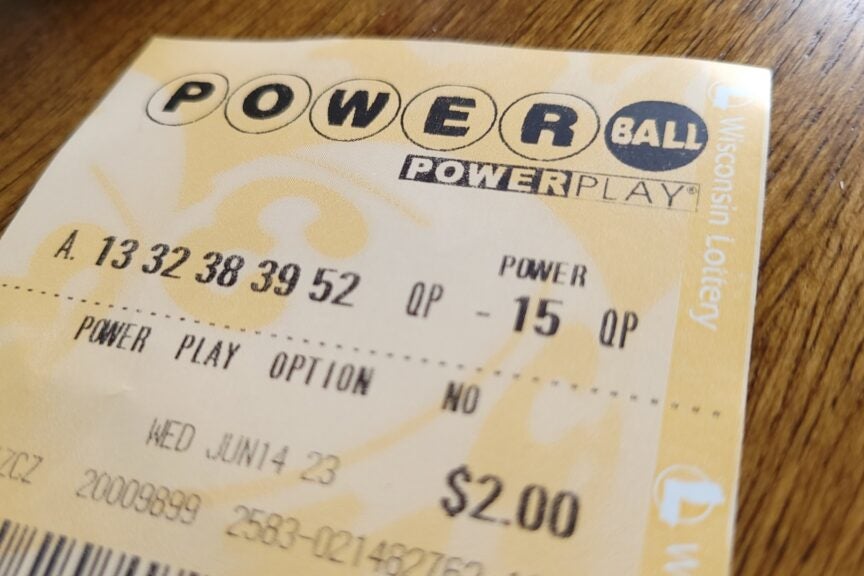Dad Misses $1.1 Billion Powerball — Walks Away With $150,000 Instead: ‘One Number Short’
John Stokes came one number away from winning $1.1 billion and had to settle for $150,000 instead.
The DeRidder, Louisiana man’s situation perfectly illustrates one of gambling psychology’s most fascinating phenomena: the near-miss effect. Stokes matched four out of five white balls plus the red Powerball on September 1, according to the Louisiana Lottery, falling just one digit short of the jackpot.
It’s the kind of “almost there” moment that psychology research shows can be more motivating and more frustrating than a complete loss. Near-miss experiences can trigger unique psychological responses that help explain why people keep buying lottery tickets despite astronomical odds.
Don’t Miss:
Stokes bought his ticket at Billie’s Wag-A-Bag on West 1st Street, choosing the convenient location. His ticket matched the numbers 08-23-25-40-53, but missed on one white ball number. The red Powerball number 05 was correct. Normally, matching four white balls plus the Powerball wins $50,000, but Stokes had added the Power Play option for an extra dollar, tripling his prize to $150,000.
Instead of showing frustration, however, Stokes expressed his gratitude. “We were shocked and feel so blessed,” he said when claiming his prize at the Louisiana Lottery’s Alexandria office.
Near-miss outcomes that come tantalizingly close to a major win occupy a unique space in gambling psychology. Research published in Neuron found that near-misses activate the same reward systems in the brain as actual wins, despite being monetary losses.
Trending: If there was a new fund backed by Jeff Bezos offering a 7-9% target yield with monthly dividends would you invest in it?
Studies show that about 30% of near-miss experiences increase gambling behavior by promoting higher winning expectations. The effect is so powerful that scratch card near-misses have been shown to increase physiological arousal, heart rate, frustration, and most critically, the urge to continue gambling.
“Near-misses are perceived as more discouraging compared to complete losses, whereas gamblers report an increased motivation to continue betting,” according to research in the journal Frontiers in Psychology.
The odds of Stokes’s specific outcome highlight just how cruel probability can be. Matching four white balls plus the Powerball occurs in roughly 1 in 913,000 tickets. The full jackpot odds? 1 in 292 million.
This means Stokes was already incredibly lucky but fell short of being astronomically lucky. That psychological gap between “very rare” and “impossibly rare” creates what researchers call cognitive entrapment.
See Also: An EA Co-Founder Shapes This VC Backed Marketplace—Now You Can Invest in Gaming’s Next Big Platform
Psychologists have identified several reasons why near-misses pack such psychological punch. The outcomes provide visual similarities to actual wins, creating what researchers call “stimulus generalization,” the brain processes them almost like victories.
Near-misses also fuel what’s known as the illusion of control, making players feel their strategies are working and that persistence will pay off. 18 out of 20 slot machine players surveyed agreed that near-misses encourage further play.
The frustration component is equally important. Research shows people imagine feeling less distressed about near-misses than they actually experience. When someone like Stokes comes one number away from generational wealth, the regret can be more intense than expected.
Read Next: Shaquille O’Neal Wants People to Take Heart Health Seriously — This AI-ECG Could Make That Easier
Image: Shutterstock


